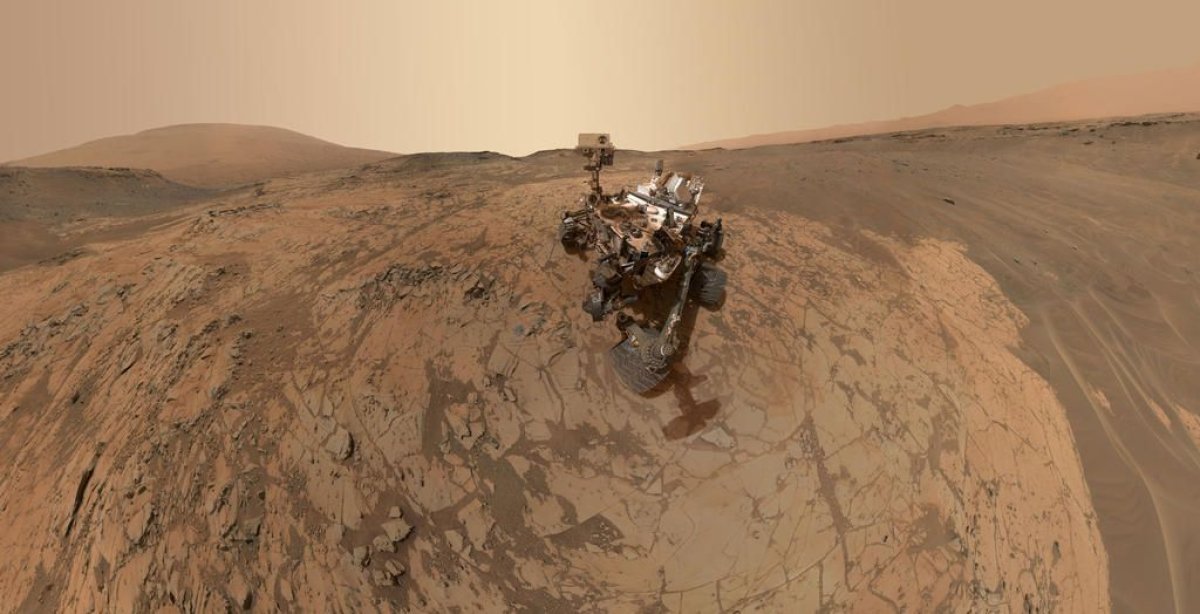A new analysis of 40-year-old data found that NASA exploratory spacecraft might have detected evidence of life on Mars decades before the June discovery of organic matter on the Red Planet—but the results were likely destroyed before they made it to Earth.
The 1976 Viking landers were sent to Mars in search of organic matter but returned with nothing. In re-examining the Viking mission's data, researchers identified chlorobenzene, a chlorinated organic material created in a reaction with the salt found in Martian soil, according to findings published in the Journal of Geophysical Research: Planets.
A 2008 NASA mission that explored Mars's north pole discovered that the salt, called perchlorate and used in rocket fuel and fireworks, became explosive when excessively heated. That means the Vikings, which used an instrument that heated soil samples to locate the organic material, may have burned any carbon molecules found in the soil when the perchlorate caught fire.
Most Martian missions have sought organic matter through a heating method, a probable cause of the delay in data.
The Curiosity rover that identified organic molecules in three-billion-year-old Martian rock used the same method, heating the samples in an oven at more than 900 degrees Fahrenheit, to release sulfur and organic carbon concentrates, NASA said. The sedimentary rock, called mudstone, likely didn't contain perchlorate.
"It was just completely unexpected and inconsistent with what we knew," NASA planetary scientist Chris McKay told New Scientist. "You get some new insight, and you realize that everything you knew was wrong."

The presence of organic molecules could mean life exists on Mars—or did at one point. But organic molecules can also be created through non-biological processes like chemical reactions that don't require life. Study lead author Melissa Guzman posited that the chlorobenzene might have traveled from Earth on the Viking landers, contaminating their instruments.
The Curiosity team also reported levels of methane, the simplest organic molecule, that varied by season, further evidence for the potential of living things on Mars. And though 95 percent of Earth's methane is generated in biological processes, like livestock waste breakdowns and natural gas leakage, the presence of methane is not a guarantee of life on the planet.
"It's a gas in the atmosphere of Mars that really shouldn't be there," NASA Jet Propulsion Lab scientist Chris Webster told National Geographic.
Another study published weeks earlier in the same journal uncovered inorganic secrets about the Red Planet's past. Researchers found nearly 800 "ghost dunes," or sand-covered shells of former dunes, evidence that water and lava covered Martian sand dunes with sediment that hardened before wind blew it away. Ancient microbes could still live in the dunes that contain ancient sand, researchers said.
"There is probably nothing living there now," study author Mackenzie Day told the American Geophysical Union. "But if there ever was anything on Mars, this is a better-than-average place to look."
SaveSave
SaveSave
Uncommon Knowledge
Newsweek is committed to challenging conventional wisdom and finding connections in the search for common ground.
Newsweek is committed to challenging conventional wisdom and finding connections in the search for common ground.
About the writer
Scottie is a Newsweek science fellow and student at the University of Florida. Her work has appeared in Women's Health, the Gainesville ... Read more
To read how Newsweek uses AI as a newsroom tool, Click here.








